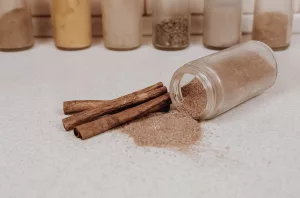Do you want to know more about the health benefits of Dandelions?

Since ancient times, people have recognized the incredible medicinal value of dandelion (Taraxacum officinale). A representation of nature’s true perseverance and resilience. As valuable as this plant is, it often presents significant challenges for gardeners. It is rich in vitamins A, B, C, and D and minerals like iron, potassium, and zinc, despite its reputation as an annoying weed. Roots and leaves of the common dandelion were once used as a remedy for a wide range of illnesses.
About the 10th or 11th century, an Arab healer documented the dandelion’s medicinal properties in his medical journal, establishing the plant’s reputation as a remedy in western medicine. After being brought to Europe, dandelion quickly gained popularity as a curative herb. It is now commonly used to treat a wide variety of ailments, including those affecting the skin, lymphatic system, blood, and digestive system, as well as to increase liver metabolism. The bitter compounds found in dandelion flowers aid digestion by increasing the activity of the digestive glands and the stomach. The nutritional density of this flower far exceeds that of any vegetable.
Why is it important to know the health benefits of Dandelion?
1. Beneficial for reducing inflammation
Some compounds in dandelion, such as polyphenols, may help reduce inflammation. When the immune system responds to an injury or infection, the result is inflammation. However, chronic inflammation can cause serious harm to your tissues and DNA if left untreated. Some test-tube and animal studies suggest that it may have anti-inflammatory effects, but human studies are lacking.

2. Help regulate blood sugar levels
Dandelion contains two bioactive compounds—chlorogenic acid and chicoric acid—that have the potential to lower blood sugar levels. These compounds have the potential to enhance both insulin secretion (insulin is a hormone that controls blood sugar levels) and glucose uptake by muscle cells. Increased insulin sensitivity and lower blood sugar levels are the results of this process.
3. Protect bone health
Bone health is greatly aided by the calcium and vitamin K found in dandelion greens. Bone protein (osteocalcin) blood levels have been shown to be reduced by a diet high in vitamin K-rich dark green vegetables. Eating more leafy greens, like dandelion greens, may help protect against bone loss, according to this study. The root’s inulin fiber may promote good gut and digestive health, which in turn benefits bone health.
4. It has potential as a skin care remedy
Extracts from dandelions have shown promise in combating photoaging, aging, and acne. When applied before or soon after being exposed to ultraviolet B radiation (the kind found in sunlight), extracts from dandelion leaves and flowers reduced skin damage. The root, curiously, did not have the same effect. The root extract, on the other hand, was found to stimulate the production of new skin cells, which could help maintain the skin’s youthful appearance even as you get older.
5. Help in maintaining healthy blood pressure
Dandelion is used for its diuretic effect in traditional herbal medicine because it is thought to cleanse the liver and kidneys. To lower blood pressure, diuretic medications are commonly used in Western medicine to flush the system of excess fluid. Potassium, found in dandelion, has been linked to lower blood pressure in some people with hypertension. As a result, the potassium in this plant may have a knock-on effect on blood pressure.
6. Improve digestion and treat constipation.

In conventional medicine, dandelion is used to ease constipation and promote healthy digestion. The prebiotic fiber inulin, which is abundant in its root, has been shown to ease constipation and speed up the digestive process. The fiber content of dandelion greens, at over 3 grams per cooked cup (105 grams), may help you meet your daily fiber requirements. Hemorrhoids and diverticulitis are just two of the many gastrointestinal issues that can be prevented by maintaining a diet high in fiber.
Most people can safely consume dandelion plants, as they have a low toxicity level and are not toxic in food preparation. It’s possible that those who are allergic to ragweed, a close relative of this plant, would also react negatively to this dandelion. Furthermore, people with sensitive skin are more likely to experience contact dermatitis. Some antibiotics, anticoagulants, and diabetes medications may also have negative interactions with it. You should talk to your doctor before using dandelion if you are currently using any prescription drugs.
Disclaimer: This is for informational purposes only.
Did you find this helpful? Let us know in the comments.
Source: Healthline
You can also visit our Facebook and YouTube pages to know more about plants and their health benefits.
You might also like:








